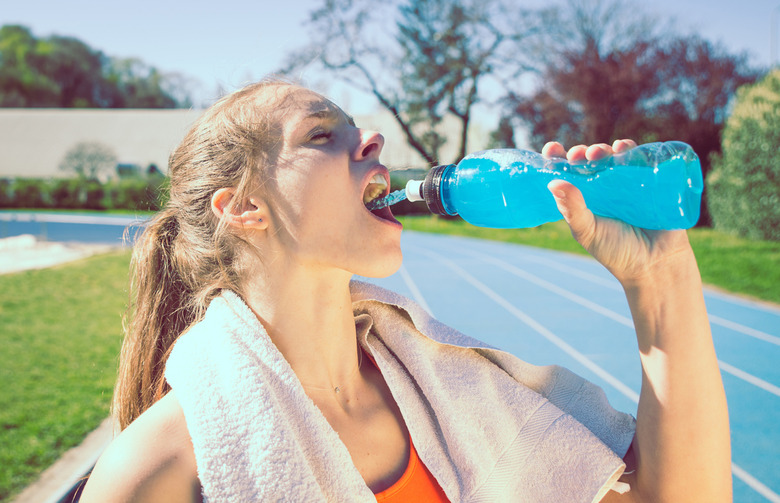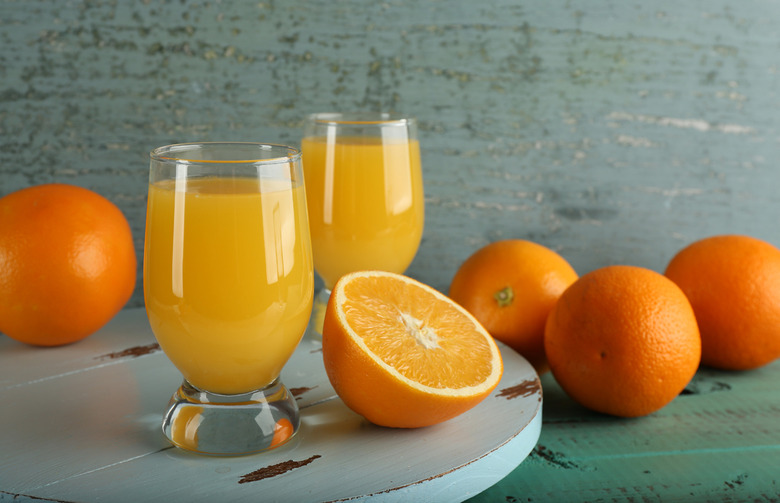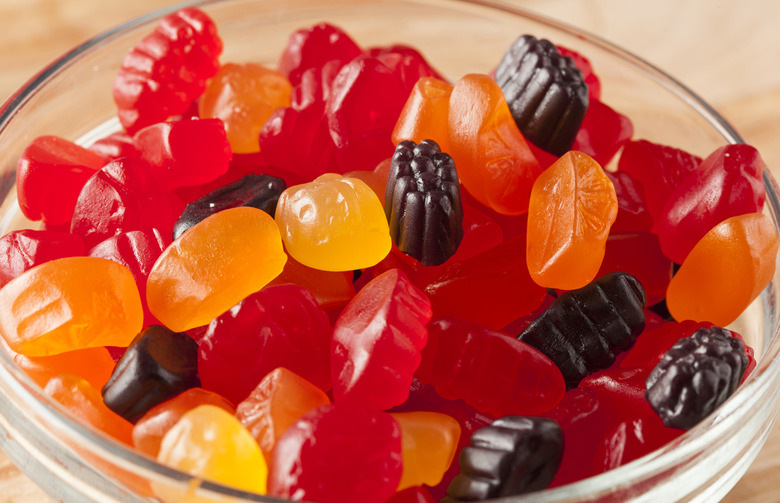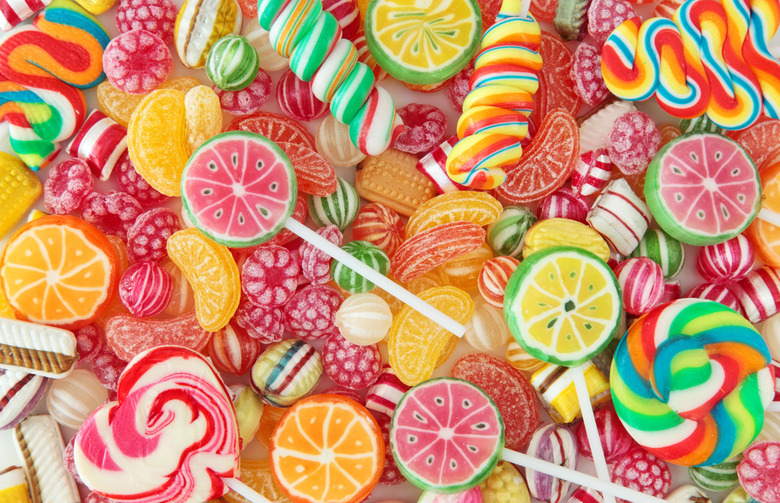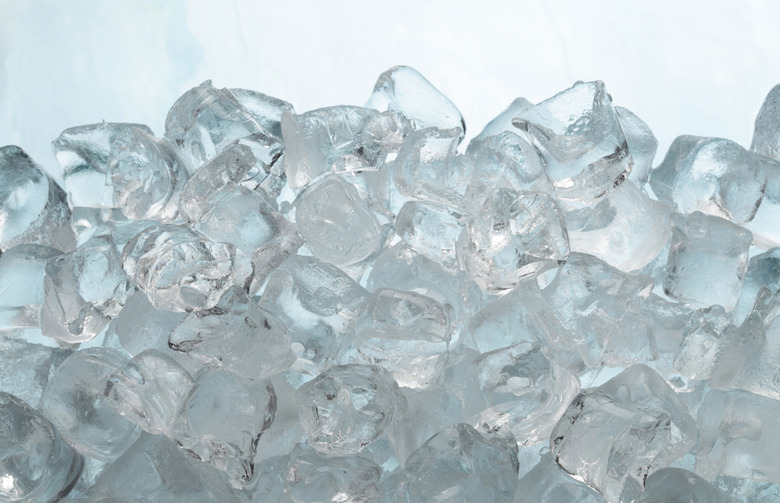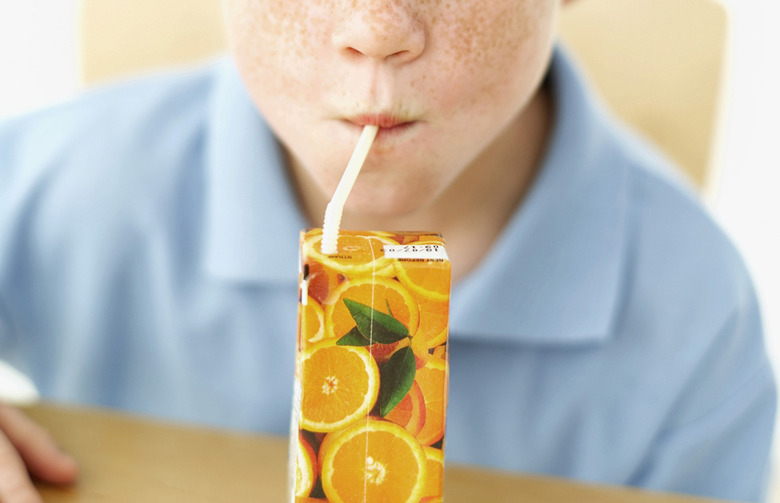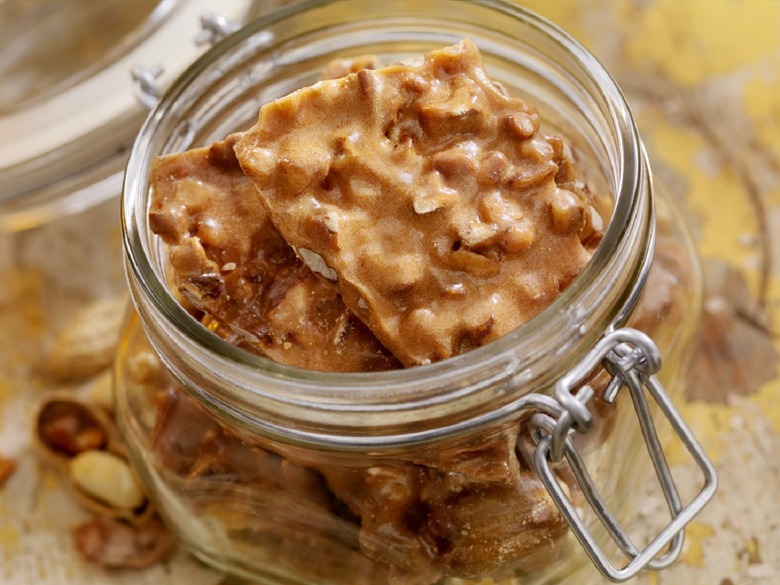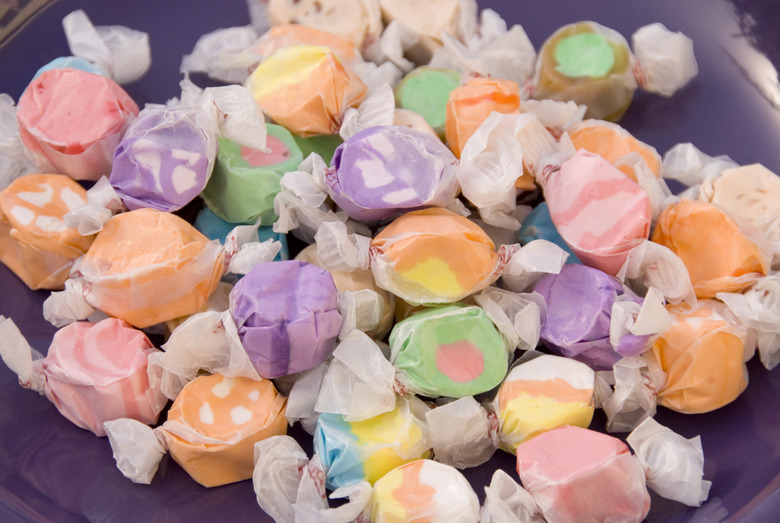25 Foods And Drinks Dentists Won't Touch
When it comes to oral health, there are certain foods and drinks your teeth can't handle in large doses. Some items that you consume on a day-to-day basis can cause the demineralization of your teeth, tooth staining, and tooth damage. We reached out to five dentists around the country: Cara C. DeLeon, DMD; Robert Schifferle, ADA/NYSDA Dentist; Timothy Chase, DMD; Andrew Allgood, DMD; and Gregory Cumberford, DDS, GPR about the foods and drinks they suggest avoiding or limiting in order to improve oral health.
Alcohol
Whether it be a sugary cocktail or even a mixed drink with soda water, consuming alcohol tends to dry out the mouth, making it less resistant to decay, according to Andrew Allgood, DMD, PC, and spokesperson for the Georgia Dental Association. When the mouth dries out, saliva production lessens and leaves plaque on the teeth longer. To keep yourself hydrated and prevent your mouth from drying out, have a glass of water in between alcoholic drinks.
Chips
In addition to the fact that chips tend to be processed and high in sodium and fat, they are also not helpful for your teeth. "Chips tend to be crunchy and then chewy, causing them to linger in your mouth," said Timothy Chase, DMD, Cosmetic Dentist, and Practicing Partner at SmilesNY. "The longer they are stuck in your teeth, the more acid produced." Avoid eating greasy potato chips and try making your own vegetable chips instead.
Citrus Fruits
"Citrus fruits are a healthy addition to our diet providing us with vitamin C and many healthy bioflavonoid compounds," said Robert E. Schifferle, DDS, MMSc, PhD. But, he adds, "The citric acid found in all citrus fruits... can cause both erosion of the tooth surface and an increase in tooth sensitivity. Following eating citrus fruits, it may be best to not to brush for at least 30 minutes to allow for the minerals in the saliva to regenerate any minerals lost from the acid exposure. Chewing sugarless gum will lead to an increase of saliva and an enhanced buffering of the acid and remineralization of the tooth."
Coffee
"In the United States, since so many people drink coffee, it has been described as being the greatest source of antioxidants in an American's diet," Schifferle said. "While [coffee] is a good source of healthy antioxidants, it also contains pigments that can cause staining of one's teeth. Not all people are susceptible to staining, [which is] probably due to differences in salivary proteins that bind not only to your teeth, but also the pigments in tea and coffee. If you have heavily stained teeth that tooth brushing just doesn't seem to remove, you need to seek professional cleaning at your dentist."
Corn on the Cob
"Corn on the cob is always a great summer treat, but if you are having orthodontic treatment, corn and braces don't always go together," Schifferle said. "If you are having orthodontic treatment, you may want to use a knife or a corn stripper to get the great taste of fresh corn without worrying about damaging your braces."
Dried Fruits
"Dried fruit is a great tasting portable snack," Schifferle said. "By removing the water during the drying process, we now have concentrated the sugars into a dense sticky food. This can easily get embedded between the teeth and can promote tooth decay, so it's a great idea to remember to floss following a snack of healthy dried fruit."
Energy Drinks
Nothing is beneficial in large quantities and energy drinks give you a heavy dose of both sugar and caffeine. According to Cara C. DeLeon, DMD, energy drinks are hurting the teenage population. They are filled with sugar and acid, which breaks down the teeth and increases bacteria in the mouth.
Fruit Juice
Fruit juice has more sugar than you think and eating whole fruit is always more beneficial than drinking juice. Children especially need the fiber and nutrients from fruit that juice cannot give them. DeLeon recommends drinking water when thirsty or having a glass of milk instead.
Fruit Snacks
If DeLeon could sway parents from giving their children one food, it would be fruit snacks. According to DeLeon, fruit snacks should not be used as a substitute for fruit, or even as a healthy snack. "Fruit snacks are essentially just sugar and they should be used as treats," she said. "Even organic fruit snacks still maintain a higher level of vitamin C, causing quicker breakdown of the enamel."
Hard Candy
Being made of pure sugar, hard candies can hurt your teeth. "Candies, such as jawbreakers take a long time to dissolve," Chase said. "The longer a food stays in your mouth, the more acidic the environment becomes.
Ice
Ice may seem like a great "zero-calorie snack" and it can help release your urge to chew, but your teeth will reap the consequences. "Although it doesn't contain acid or sugar, chewing on ice can be dangerous by easily cracking or breaking teeth," said Chase.
Juice Boxes
"The biggest problem when it comes to oral health is the amount of convenient, packaged foods," DeLeon said. "These convenient foods contain high amounts of sugar, even if they are natural sugars." Similar to fruit juice, DeLeon recommends monitoring the frequency of consumption when it comes to juice boxes. The main source of sugar for children should be whole fruits and vegetables.
Mints
"Having a cough drop or a breath mint may be a good way to sooth an irritated throat or to help freshen your breath," Schifferle said. "However, an increased frequency of using cough drops or mints can lead to an increase in tooth decay. Every time you have an exposure of sugar, the oral bacteria use the sugar to make some acid, which over time can lead to the development of cavities. This acid exposure, however, is brief, usually lasting 15 to 30 minutes, after which the saliva helps to raise the pH and remineralize any area that was affected by the brief acid exposure. However, if you were taking a cough drop every 15 to 30 minutes, the acidity in your mouth would never get a chance to be neutralized and the tooth surface would not readily remineralize. So if you are using sugar-containing cough drops or mints, you would want to limit the frequency of use. The use of mints or cough drops sweetened with sugar alcohols, however, do not lead to an increase in acidity and do not promote tooth decay. So, if possible look for cough drops and mints sweetened with mannitol, sorbitol, or xylitol."
Peanut Brittle
Although nuts and legumes are healthy and provide nutrients to the body, hard, crunchy, sugary peanut brittle may not be the best option. Gregory Cumberford, DDS, GPR recommends avoiding hard, sticky foods, such as peanut brittle. It could crack teeth or damage fillings.
Popcorn Kernels
"Popcorn is a healthy snack and air-popped without oil is a great low-calorie food," Schifferle said. "However, in the midst of the fluffy white popcorn, there always seem to lurk a few unpopped kernels. These seem to have a goal of breaking a tooth. So eat popcorn, but be cautious for unpopped kernels."
Popped Popcorn
Carrying floss sticks in your bag may not be a bad idea after all. Although popcorn is a filling and healthy snack, it is one of the most common foods to get wedged in between your teeth. "This snack is known for getting stuck in your teeth, which could lead to bacteria buildup," Chase said. "When you eat popcorn, it is crucial to floss right away."
Powdery Candy
"Powdery candies, such as Pixie Sticks, contain nothing but sugar and can lead to cavities by changing the mouth's pH," Chase said. When the pH of the mouth changes, it can cause damage to the teeth. When there is a low pH in the mouth, the healthy bacteria dies and the cavity-causing bacteria grows in the mouth. This leads to infection and cavities.
Soda
"Regular sodas can have over an ounce of sugar per can," Schifferle said. "Besides the exposure to sugar, some varieties of soda also contain phosphoric acid and have a pH ranging from two to four. Even in diet soda without sugar, this level of acidity can easily damage to tooth surface."
Sour Candy
"Hard, soft, liquid, and spray sour candies usually contain citric, malic, tartaric, or fumaric acid," Schifferle said. "At levels naturally found in fruits, these acids contribute to the flavor of the fruit and show a reduced level of acidity. In sour candies, they usually have a higher level of acidity with a pH of two to four. At a pH of four, tooth structure can easily be eroded. These are detrimental to the teeth and have also been associated with soft tissue lesion of the mouth."
Sticky Candy
What happens when you combine sugar and a sticky texture that molds to your teeth? Sticky candy may give you the sugar rush you are looking for, but the candy lingers on your teeth, making it harder to brush off. This leaves your teeth prone to cavities and decay.
Sugar Gum
When it comes to chewing gum, the type of gum you choose matters. According to Delta Dental of California, chewing gum that contains sugar can increase your risk of developing cavities. The good news is that it is the opposite for sugar-free gum that is sweetened by xylitol. Plus, it may be helpful to chew gum after eating certain foods. "Chewing sugarless gum following an acid exposure helps to increase the amount of saliva in the mouth," Schifferle said. "The buffering effect of the saliva can help neutralize the acid from the food that was eaten or which was produced by the bacteria in the mouth."
Taffy
When it comes to food, the sticky, sugar-filled options tend to be the worst. "Taffies and candies filled with caramel, coconut, or nuts stick to everything inside of your mouth," Chase said. "The longer a food sticks to your teeth, the longer bacteria can feed on it – which could produce cavity-causing acid."
Tea
The health benefits of green tea go beyond antioxidants and nutrients that positively affect the body. However, tea is similar to coffee in the fact that it can stain your pearly whites. Tea is rich in tannins, which promote stains. Your best bet is to drink herbal, green, and white teas, which are less likely to stain than black tea.
Vinegar
"A little vinegar and oil may taste great on a salad, but the vinegar may contribute to remineralization of the teeth and to tooth sensitivity," Schifferle said. "Don't avoid vinegar; just remember that the acidity can affect the tooth surface. After eating a food containing vinegar, you may want to rinse your mouth with water or chew some sugarless gum, while avoiding tooth brushing for at least 30 minutes."
Wine
"Wine contains many healthy anti-inflammatory components. However, wine is also acidic and could contribute to demineralization of the tooth," Schifferle said. "In addition, red wines contain a variety of pigments that can bind to the tooth and contribute to staining. Brushing your teeth after waiting at least 30 minutes may help to reduce the staining. If you are a person who develops deeper staining, your dentist may recommend bleaching to lighten your teeth."
